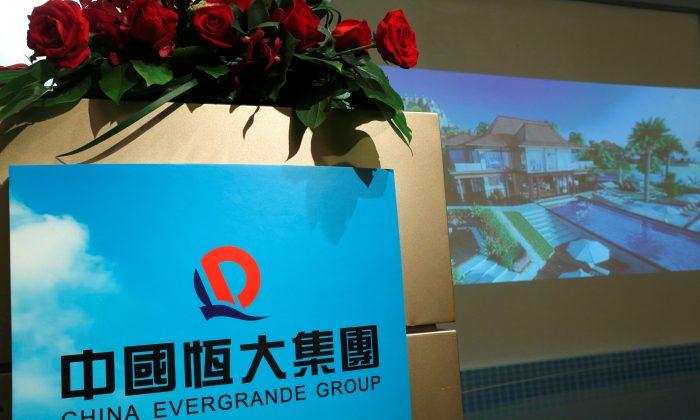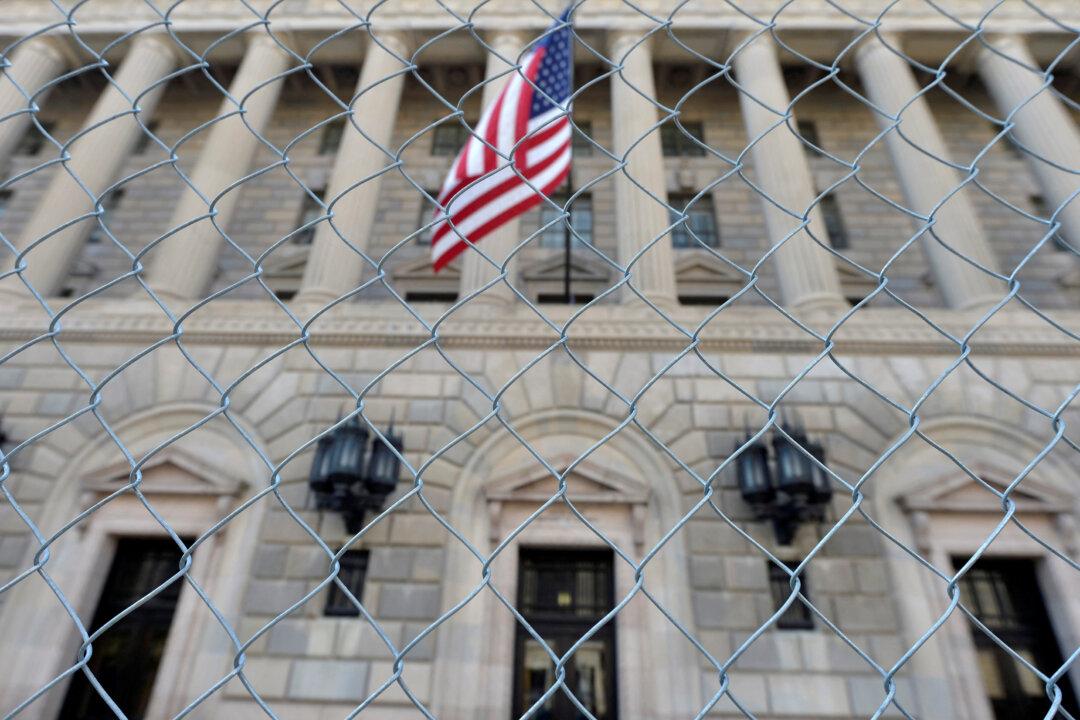HONG KONG—China Evergrande Group, one of China’s most indebted property developers, sold $3 billion in dollar bonds on Jan. 23 in Asia’s biggest offshore high-yield bond sale so far this year.
Evergrande is China’s second-largest property developer by sales and has been under pressure to raise funds to cut its large debt pile, which stood at 671.1 billion yuan ($98.88 billion) as of June 2018, according to CreditSights.
The sale was a reopening of $2.1 billion in existing bonds.
The company sold an additional $1.1 billion in bonds maturing in 2020, $875 million in bonds maturing in 2021 and $1.025 billion in notes due in 2022, according to a term sheet seen by Reuters.
The yields on the new bonds were a lot higher as the bonds were sold below par. The 2020 bonds had a yield of 8.25 percent, an increase of 125 basis points (bps), the 2021 bonds had a yield of 9.5 percent, an increase of 325 bps, and the 2022 bonds had a yield of 10.5 percent, an increase of 225 bps, the term sheet showed.
China’s property developers have been very active in the bond markets in the past few weeks, seeking to take advantage of better market conditions just as they face almost $100 billion in maturing debt both onshore and offshore this year.
Based on Refinitiv data, the Evergrande sale would bring the total raised in dollar bonds by property developers to $7.2 billion so far this year, compared to the $18.8 billion in offshore bonds they sold last year.
Investors shied away from junk-rated debt last year as a steep sell-off in markets made deals hard to complete and forced some companies to offer to pay double-digit yields for two-year paper.
Evergrande itself repriced the market in late October when it sold $1.8 billion of bonds with coupons as high as 13.75 percent.
The order book for the latest sale reached $4 billion at its peak, according to a banker on the deal.
But investors now see value in China’s junk bonds given the higher yields.
“We are upbeat about low-rated, high-yield and short-term duration bonds which benefit from looser liquidity and when private enterprises’ financing difficulties are eased,” said Freddy Wong, fixed income chief investment officer in China and portfolio manager at Fidelity International.
S&P said the reopening of Evergrande’s bonds “will slightly improve Evergrande’s liquidity, which we still assess to be less than adequate, with liquidity sources marginally covering uses over the next 12 months.”
Downturn of Property Market
In China, real estate is one of the major ways to build wealth. Land prices have been increasing year-on-year for the past four years, causing worries about inflation and government intervention to maintain the bubble.Various moves by the Chinese regime have led to alarm in the real-estate market.
On July 31, 2018, central authorities made an announcement that they would “resolutely curb housing prices.”
Xu Jiayin, founder of Evergrande Group, delivered a speech on Sept. 13 expressing his loyalty to the Chinese Communist Party (CCP), saying, “I and everything that belongs to Evergrande were given by the CCP.” His statements suggested desperate hope that the regime would protect Evergrande in the event of economic downturn.
According to the latest report by Haitong Securities, in the first 17 days of December, real estate sales growth in 41 cities had slumped to negative territory, at -1.9 percent. At the same time, the growth rate of land sales for the whole country in November also dropped to negative territory.





